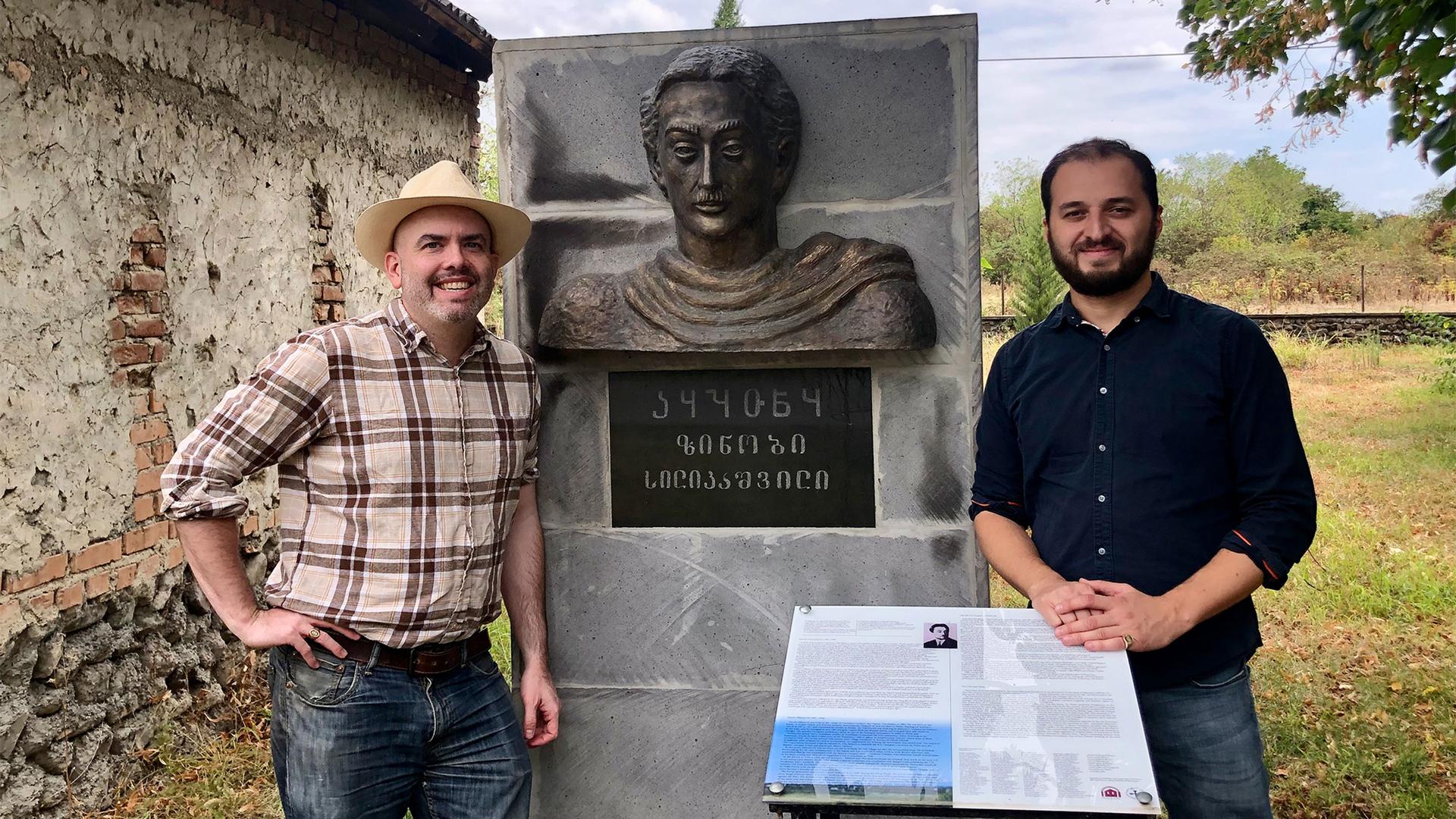Zinobiani is a village like many others in Georgia’s Kakheti wine region. Nestled beneath the towering Caucasus mountains, its roads are unpaved, its dwellings modest. Most people there are involved in the grape cultivation of grapes.
There is one big difference about Zinobiani: Most of its older inhabitants — mostly people over the age of 40 — speak Udi, a language with a long and rich history that linguists are feverishly documenting while it is still spoken.
Every two weeks, a language dies with its last speaker. At least 230 of them went extinct between 1950 and 2010, according to the UNESCO Atlas of the World’s Languages in Danger. And about 50% to 90% are predicted to disappear by the next century.
Many dying languages take their secrets with them. Most are just oral languages, never having been written down. And we may never know much about them.
Udi, however, is different. It has its own ancient alphabet and an unlikely grammatical feature that some linguists believe is unique.
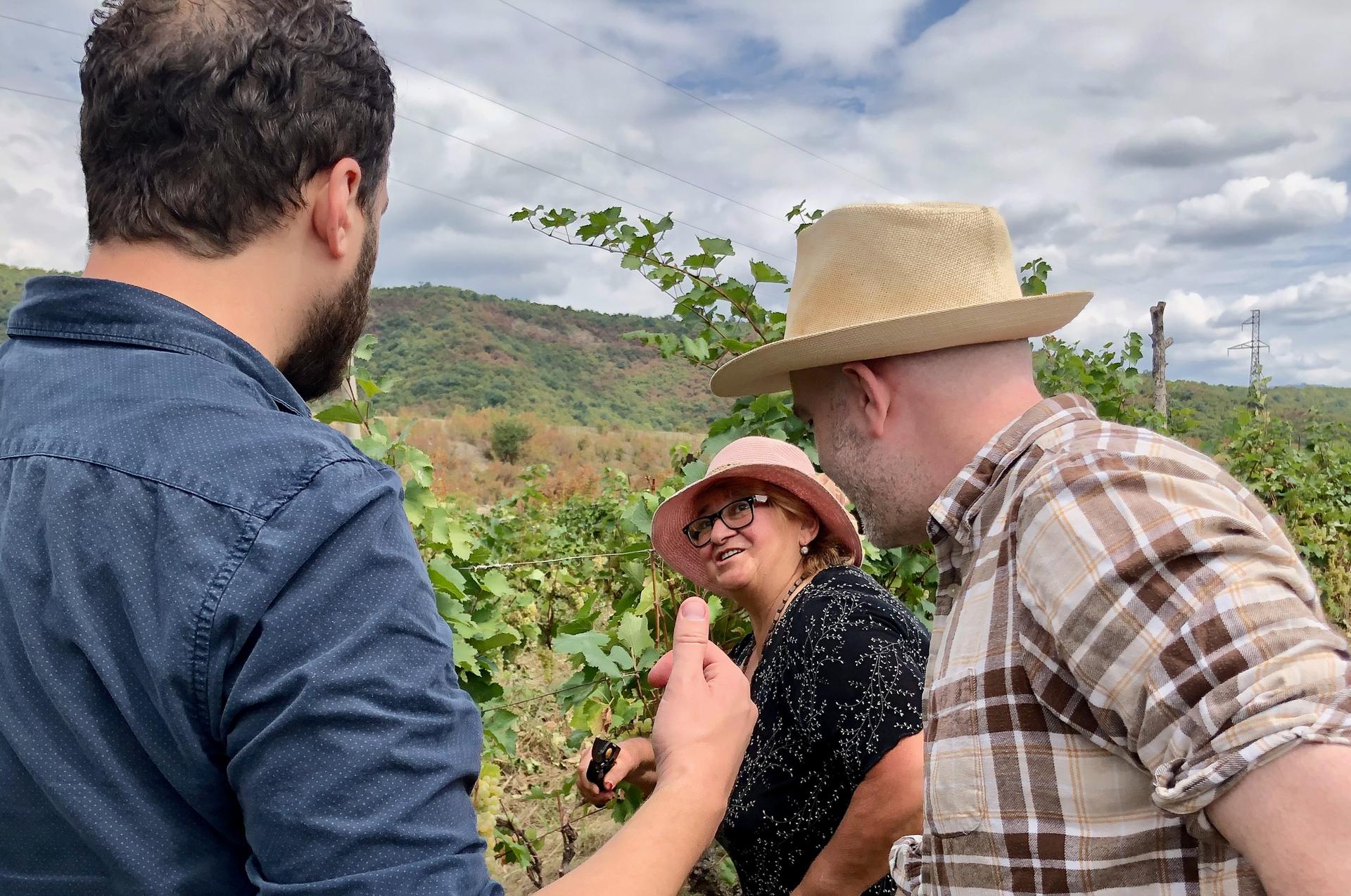
I met with Zhenia Mamulashvili, a grape and hazelnut farmer, in Zinobiani. Her greeting was in Georgian and a bit of English, which she learned long ago in school. It’s only when she is alone with her husband, or with other villagers, that she speaks in Udi.
In her spare time, Mamulashvili writes poetry, some of it in the Udi language. She recites one poem — an ode to someone named Zinobi Silikashvili:
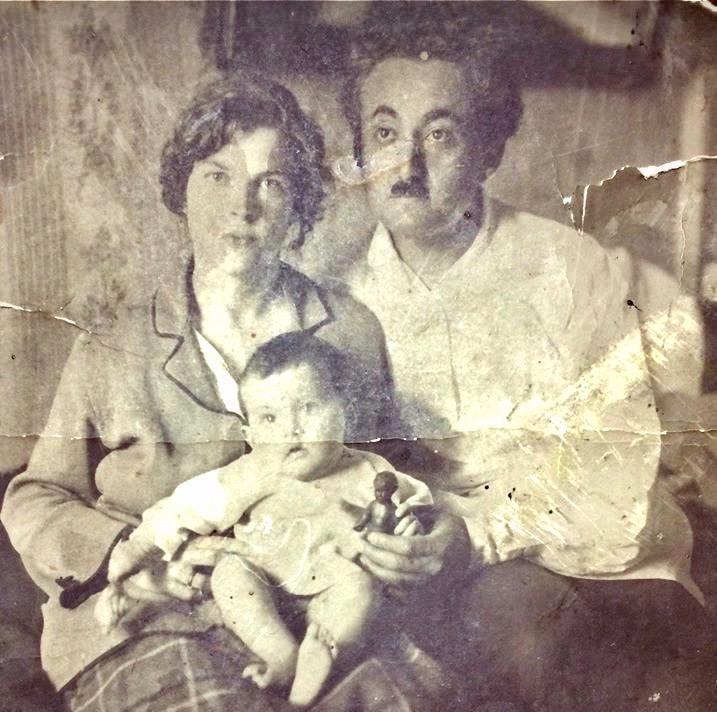
Zinobi — who everyone refers to by his first name — was the founder of the village and, as far as people who live there are concerned, the man who kept the place together and kept its population speaking Udi.
Alexander Kavtaradze, Zinobi’s great great nephew, shared his ancestor’s story — one that’s familiar to every villager in Zinobiani.
Zinobi was born into a wealthy family in 1891, in a town about 120 miles from current-day Zinobiani, in what is now Azerbaijan. The Udi people had lived in that region for centuries. During the medieval era, they even ruled over their own kingdom, known as Caucasian Albania. (It has nothing to do with modern-day Albania.) But by the 1920s, the Udis became a persecuted minority, caught in the crossfire between warring Azeris and Armenians.
“Some Udis thought that the only way to survive was to move somewhere else. Zinobi led them here.”
“Some Udis thought that the only way to survive was to move somewhere else,” Kavtaradze said. “Zinobi led them here.”
That was in 1922. This month, the Udis are celebrating the centennial of their move to Zinobiani, named after their leader.
Growing interest in the Udi language
The Udi language is spoken by as many as 20,000 people today in several communities scattered across Azerbaijan, Armenia and Russia. But it’s in Georgia where the language has attracted international attention from linguists and historians.
“Their language was first written down, as far as we can tell, in the 4th, 5th centuries AD,” said Thomas Wier, a linguistics professor who grew up in Texas and now teaches at the Free University of Tbilisi, Georgia’s capital. It’s a good place to study languages. Of about 50 of the languages that are still spoken in the Caucasus region, only three have their own alphabets: Georgian, Armenian and Udi.
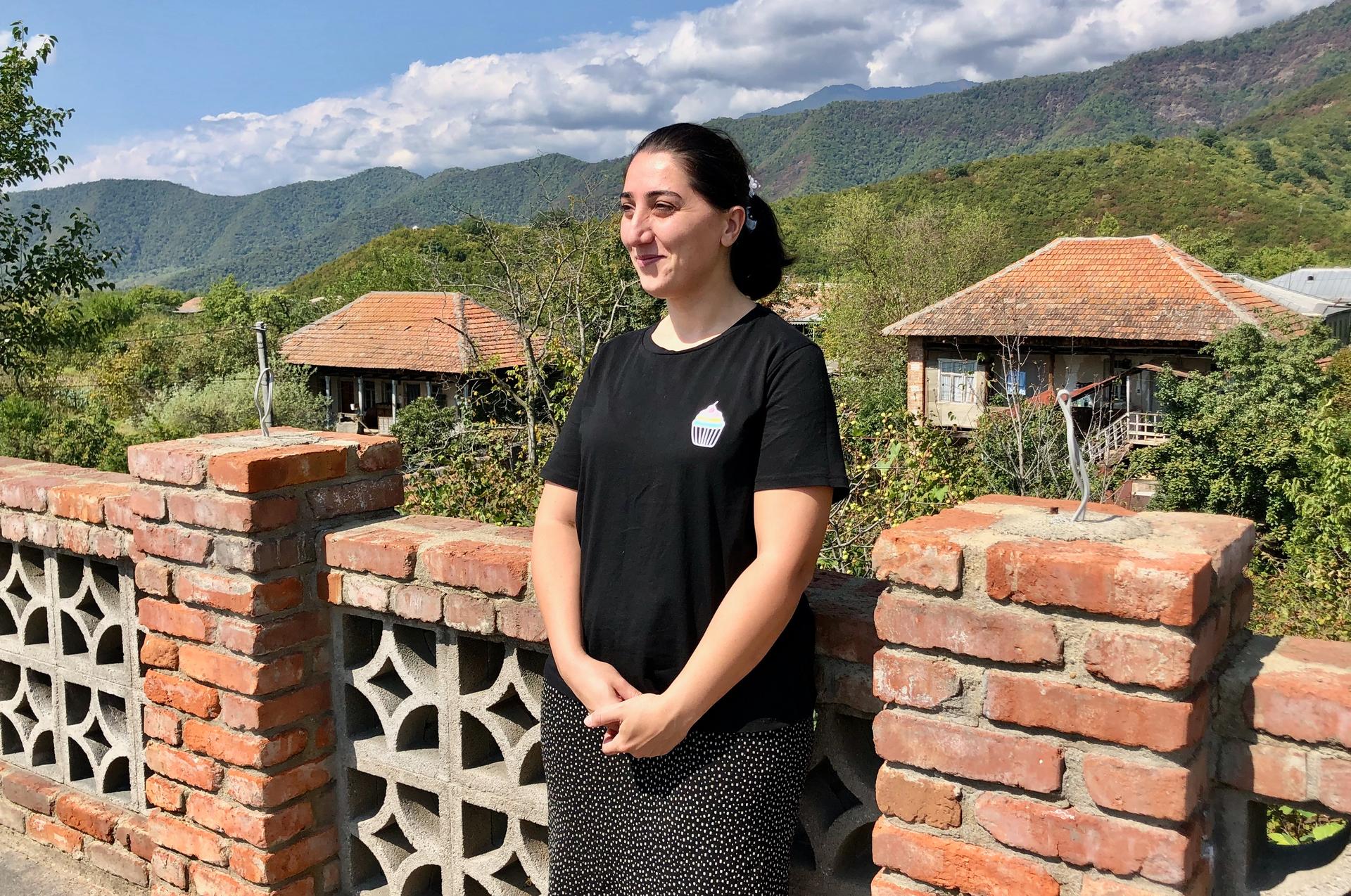
“This ancient alphabet is a “very strong talisman of [Udi] identity,” Wier said. “It’s something that makes them completely unlike the many other very interesting, but different, groups of the Caucasus.”
Ana Patchikashvili only recently realized that her linguistic heritage was different. What sparked her curiosity was the presence of foreign scholars in her home village.
“When I first saw Americans and Europeans in Zinobiani, I became interested,” Patchikashvili said.
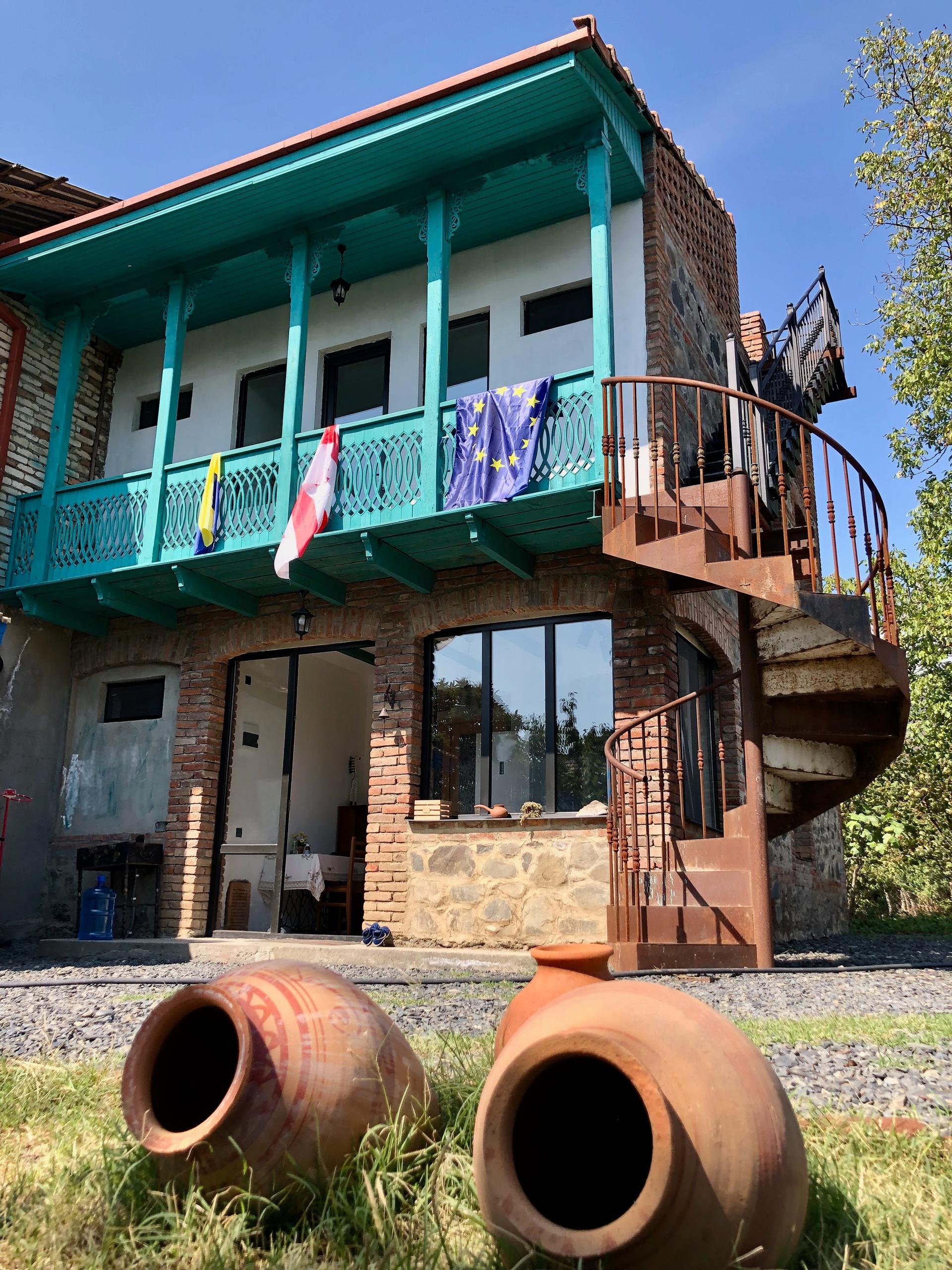
She then started lobbying the Georgian government to invest in the village. Now, dirt roads are being paved, there are memorials to Zinobi and Udi culture and Patchikashvili has opened a guest house, offering traditional Udi dishes.
The developments have changed Zinobiani for the better. Fewer people are moving away, and some are even coming back. Plus, attitudes toward the city are also changing.
“When I was a kid, it was kind of shameful to say that you were Udi,” Patchikashvili said.
“Now it’s becoming more popular. People are not ashamed.”
Grammatical differences
There’s another feature of the Udi language that some people are now proud of, after becoming aware of it. It’s a grammatical aspect that some linguists believe is unique to Udi. And it happens when verbs are inflected.
For example, in English, the word “kicks” consists of the root word “kick,” plus the suffix “s,” which indicates that the word is in the third-person singular.
Udi has person-agreement like that, too, linguist Thomas Wier said. But the suffix doesn’t just stay stuck onto the end of the word, like “s” does in English. It can show up elsewhere in the sentence — and even in the middle of the root verb. With the hypothetical “kicks” example, in Udi it could appear as “kisck.”
“That’s something that linguists have always thought was completely impossible,” Wier said. “The fact that it exists in Udi means that it’s a real possible thing.”
It’s a poignant reminder of what may be lost every time a language stops being spoken. And Udi looks like it’s headed that way. The children in the village don’t speak it, and there is no immersion school to teach them the language. But Udi is continuing to be recorded and documented — and heralded by its people, whether or not they regularly speak it.
Maybe calling Udi a dying language isn’t accurate. Perhaps it’s someplace between dying and living. And maybe it’s just as important that people revere the language, and that it’s a key part of Udi identity.
Sixteen years after Zinobi Silikashvili led his people to Georgia and founded the village of Zinobiani, he became one of the millions of victims of Soviet leader Joseph Stalin. Georgia had become a part of the Soviet Union, and the Kremlin did not tolerate strong-willed, independent thinkers like Zinobi. He was executed in 1938.
“My grandmother would often remember this story,” Zinobi’s great great nephew Alexander Kavtaradze said. “She was only a few months old when that happened, but she knew it from her mother and all the siblings.”
To this day, Zinobi’s spirit lives on among Georgia’s Udis, not unlike the language they once all spoke — not dead, but dormant.
For more on the Udi language and the people of Zinobiani, Georgia, listen to this episode of “Subtitle,” a podcast about languages and the people who speak them. “Subtitle” is supported by a major grant from the National Endowment for the Humanities.
